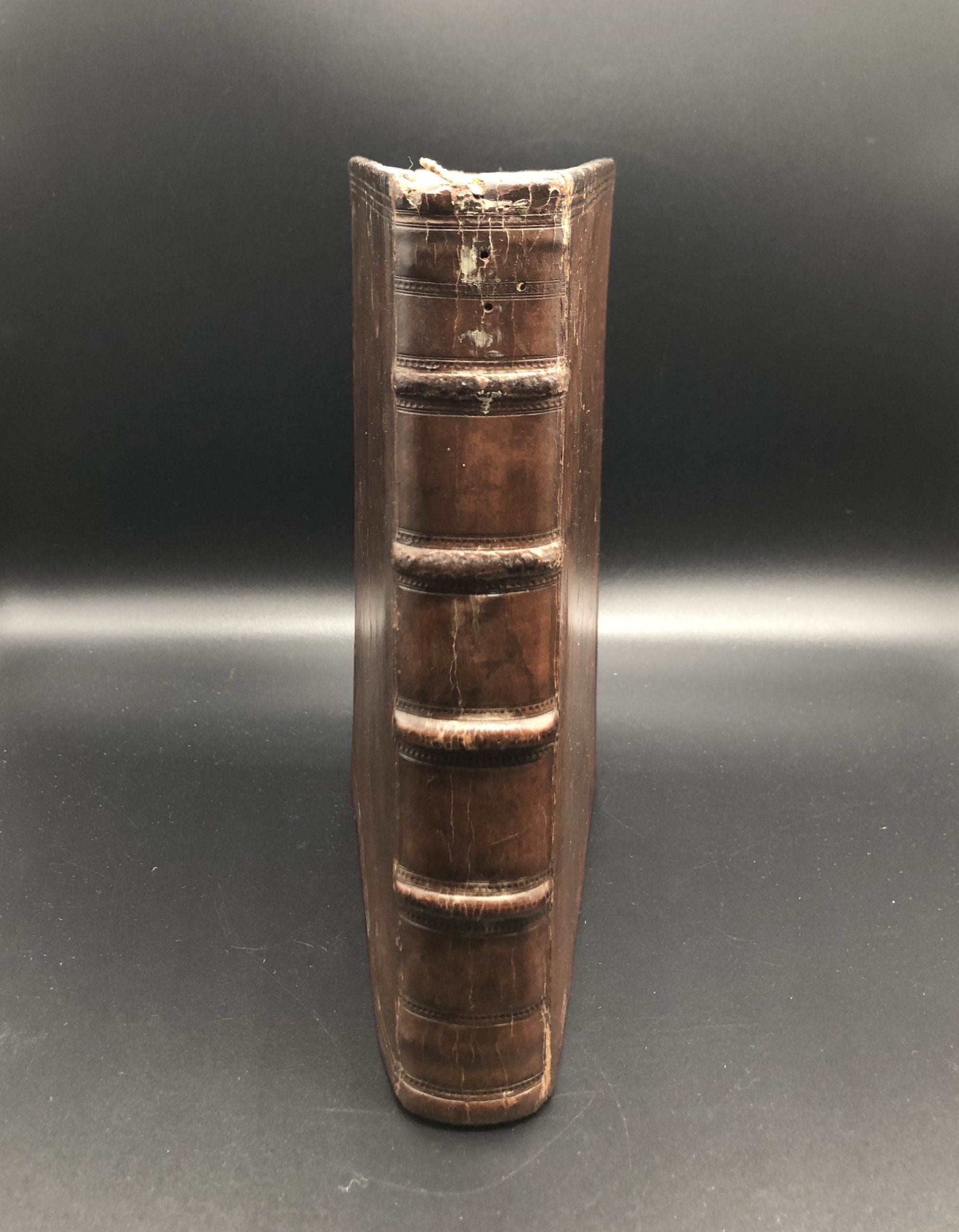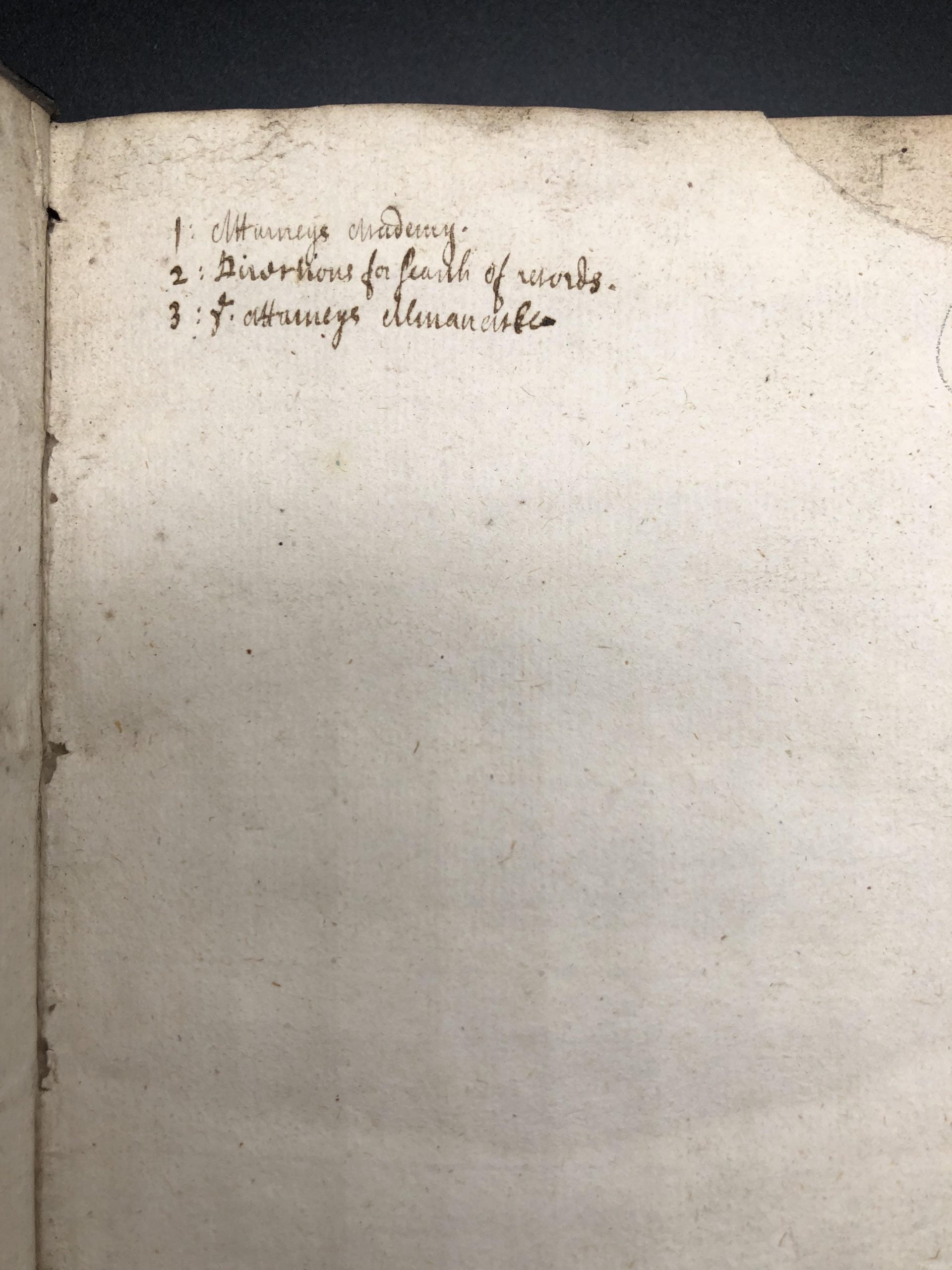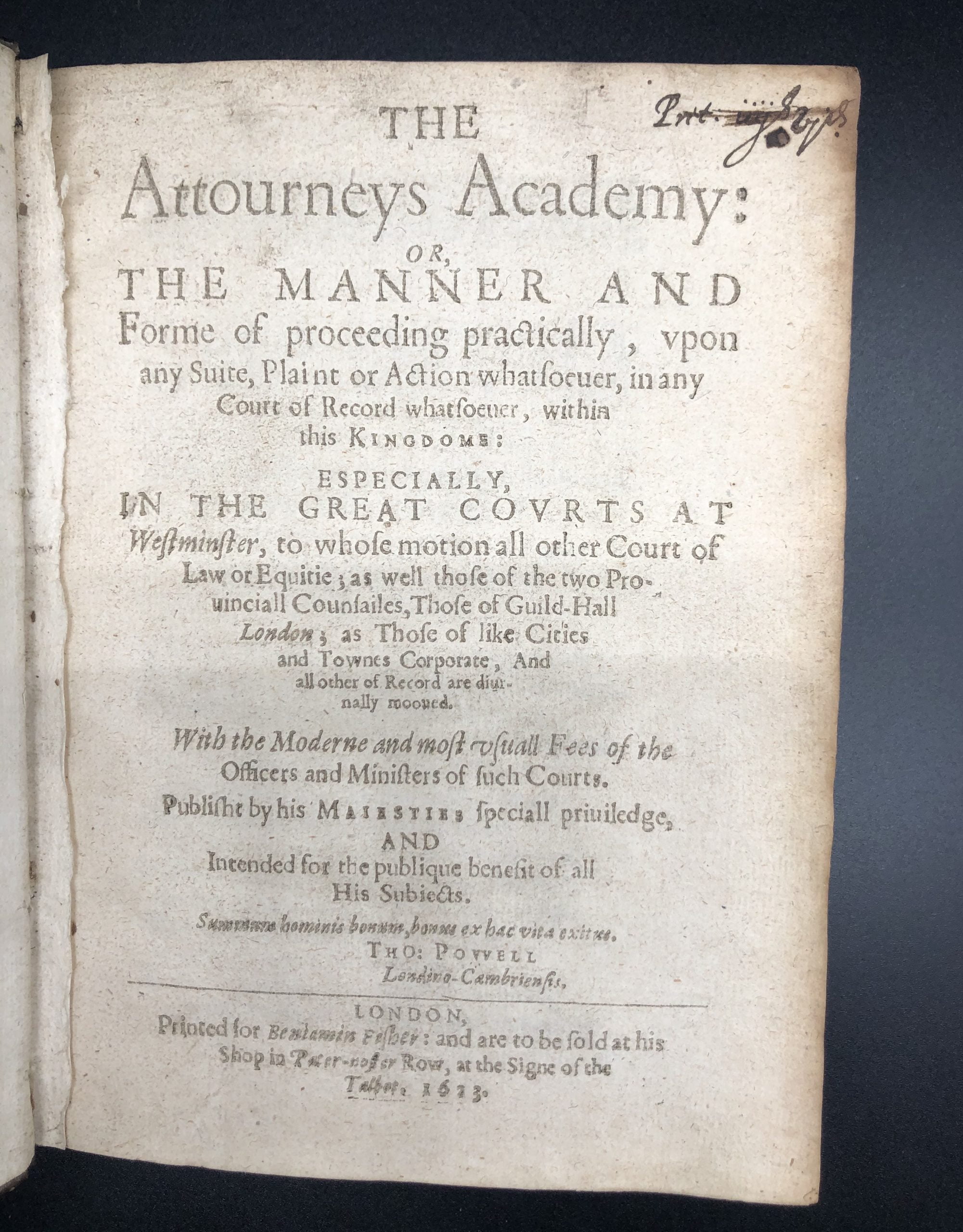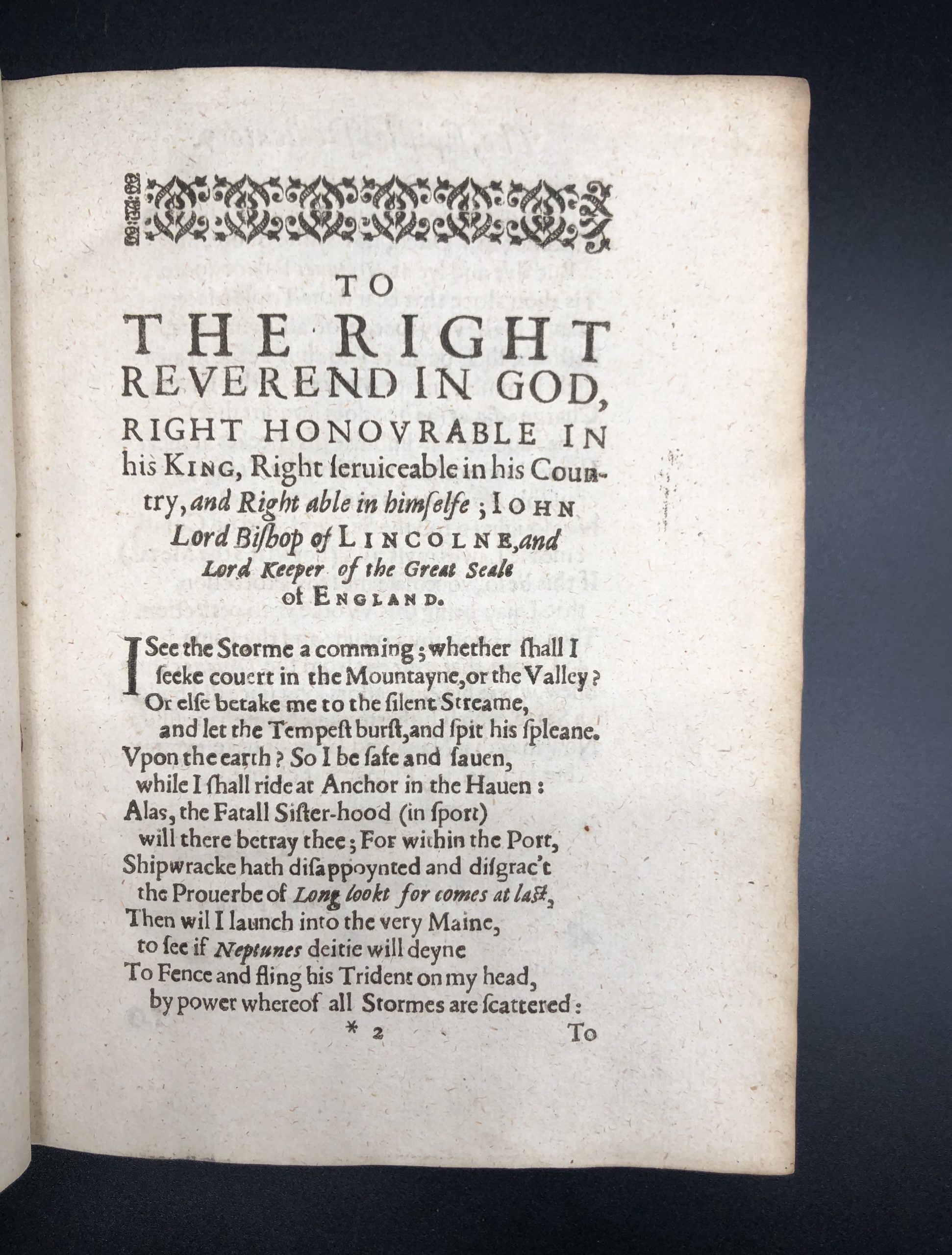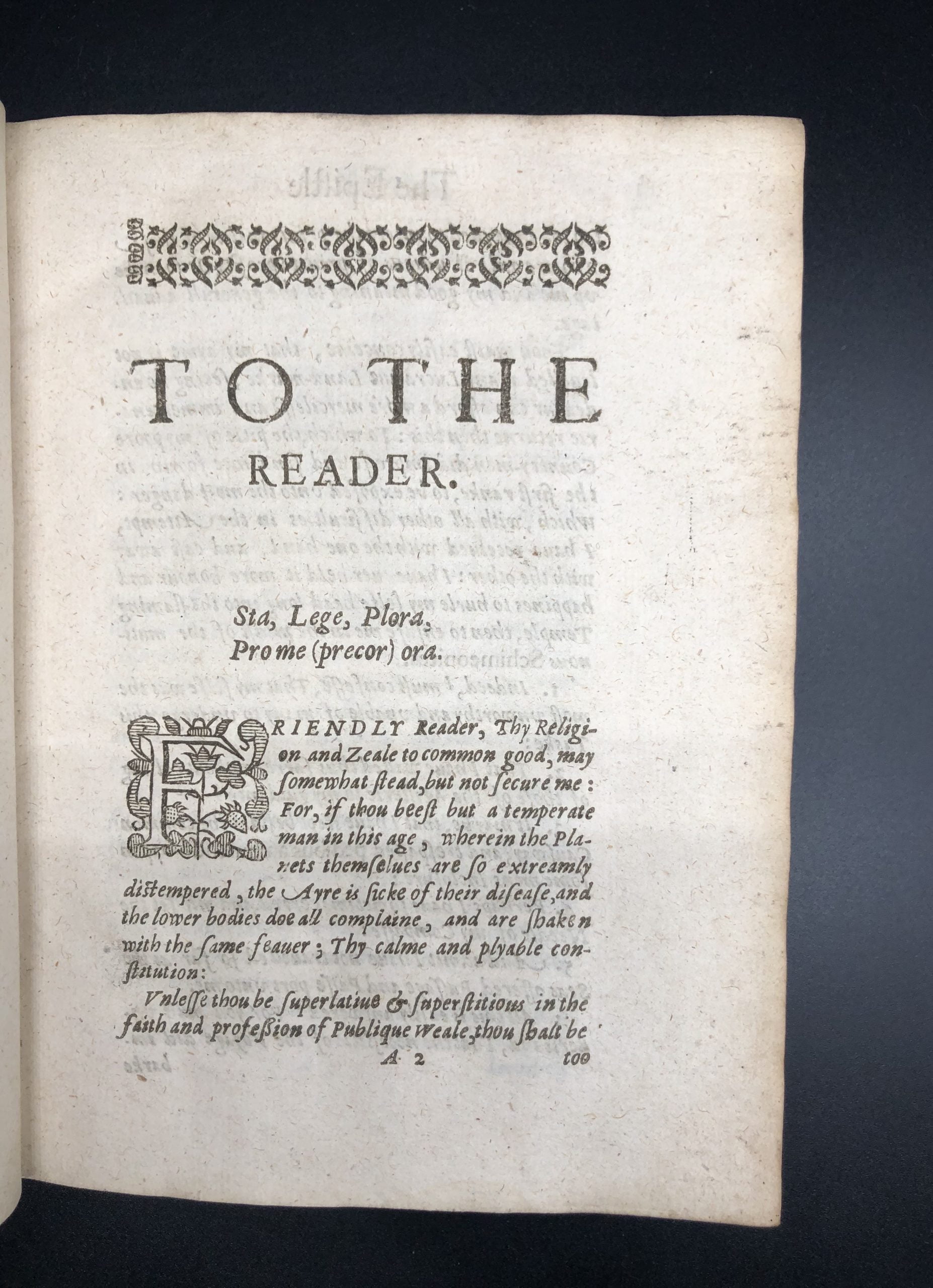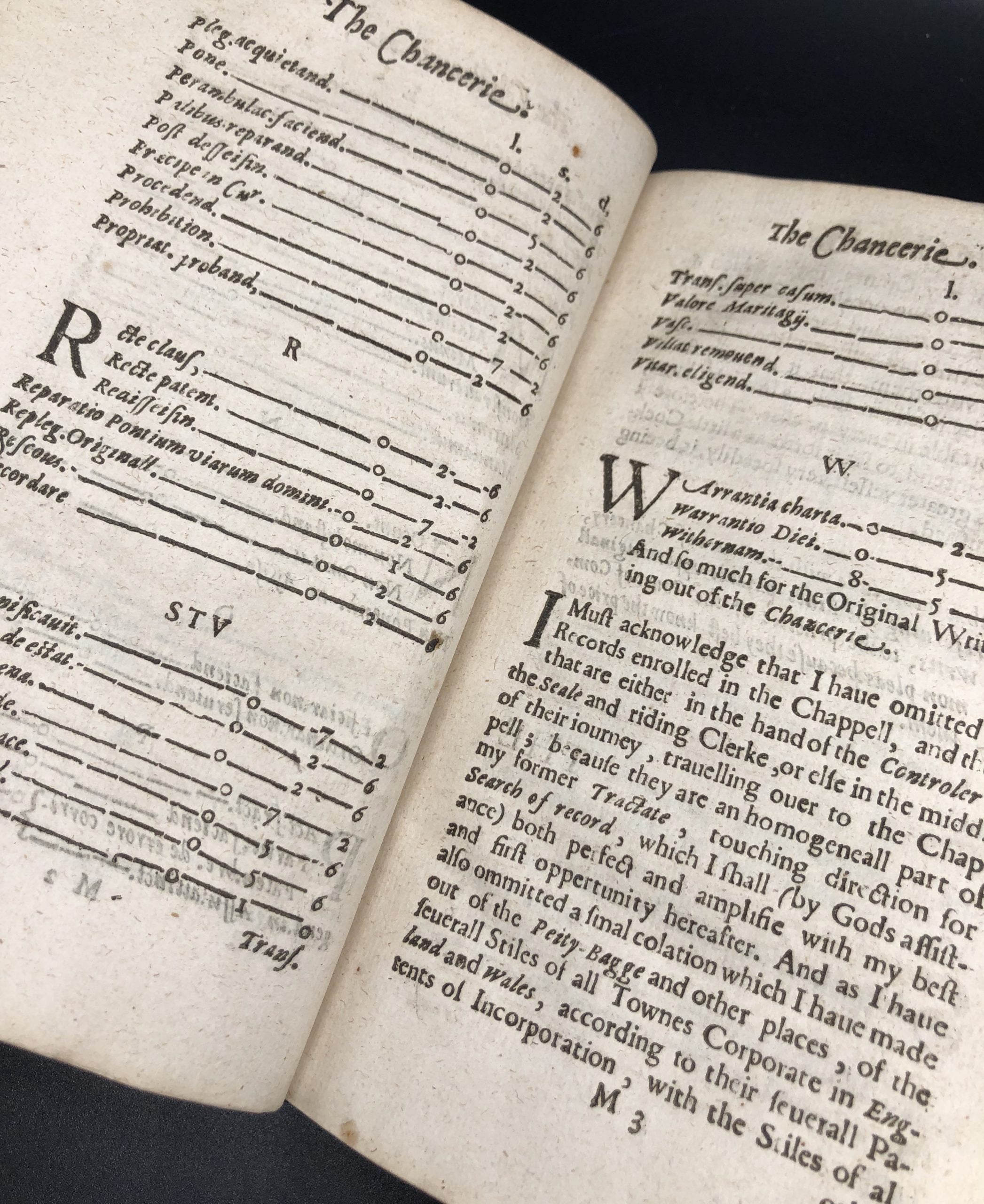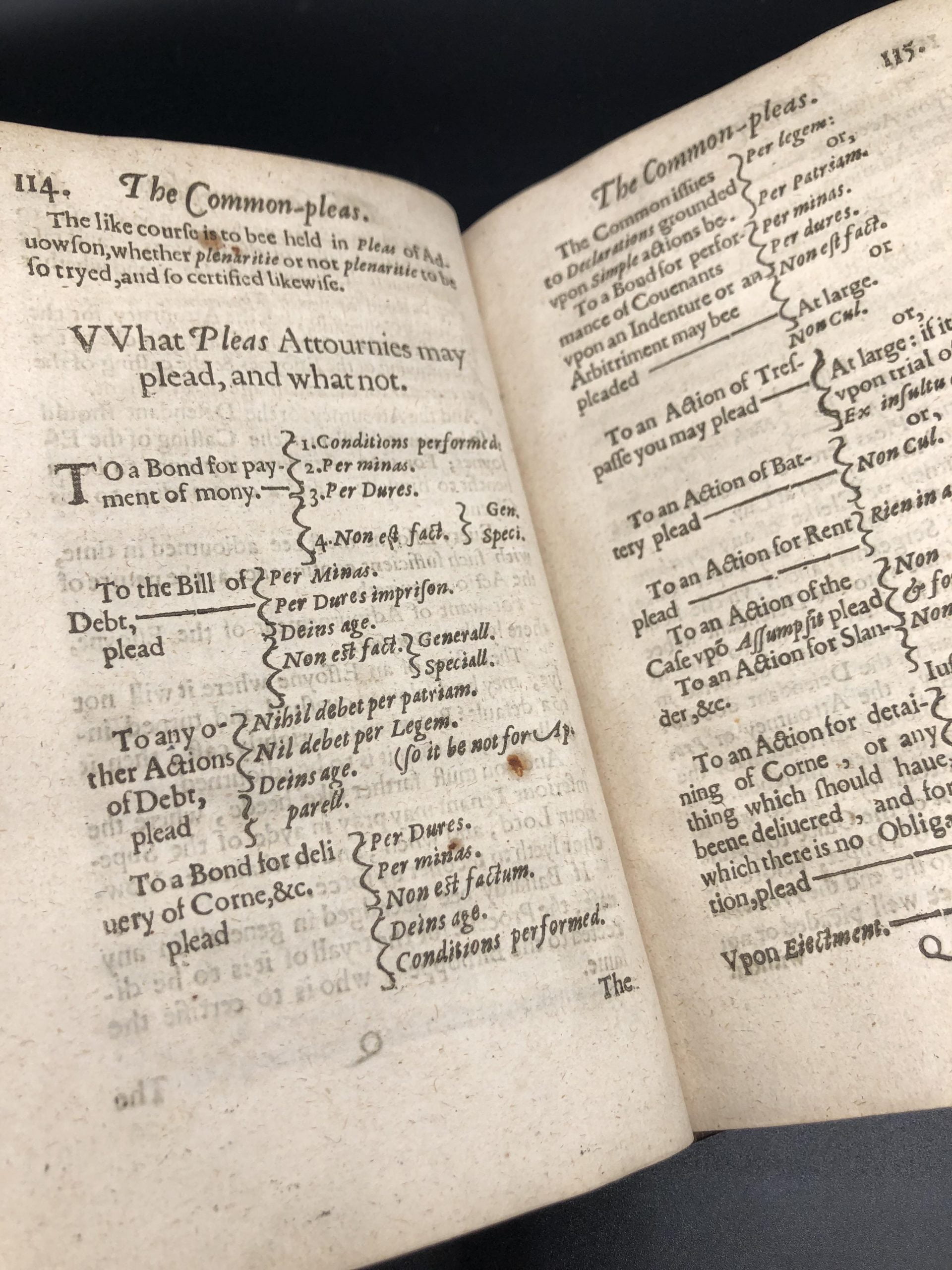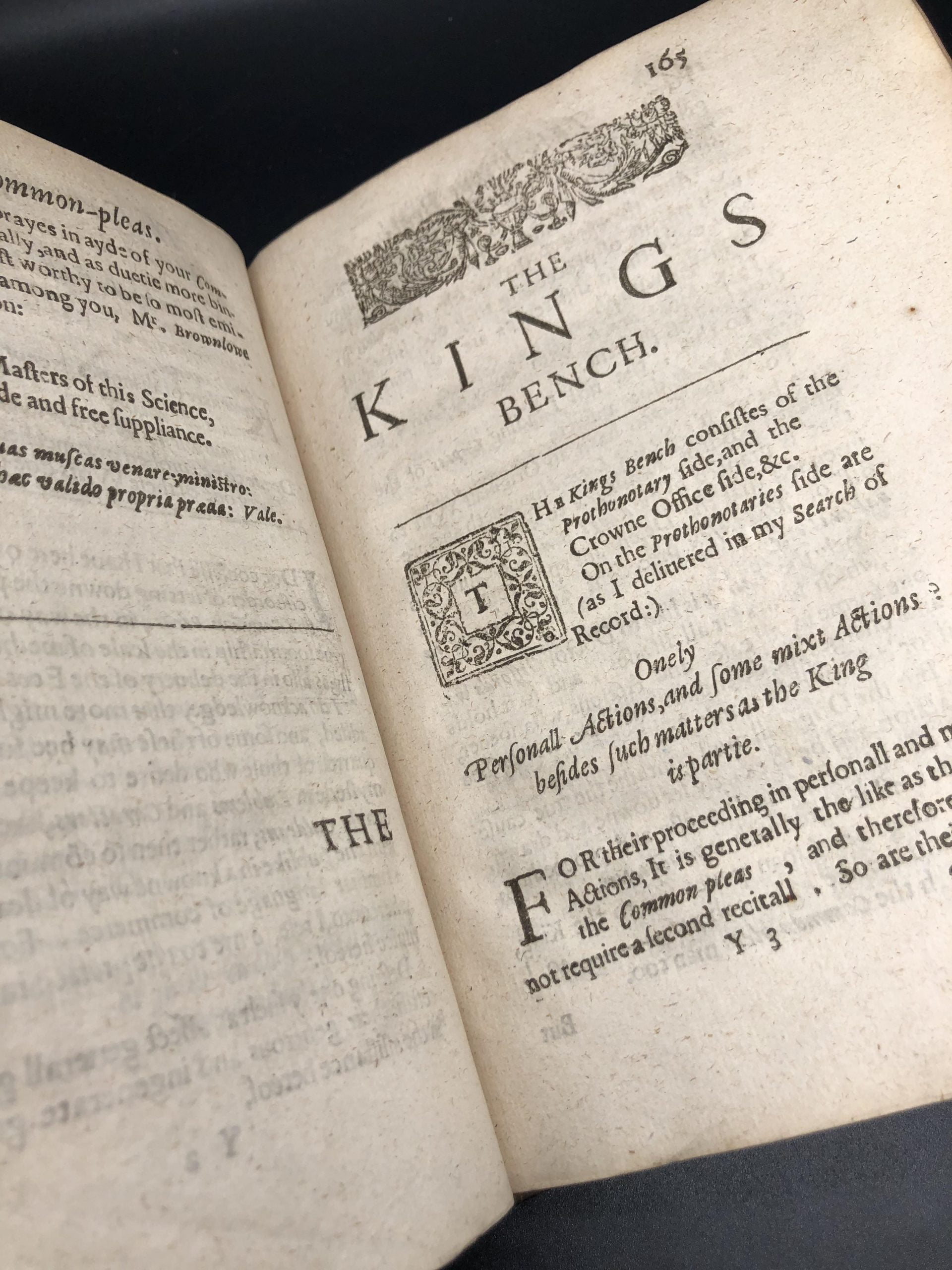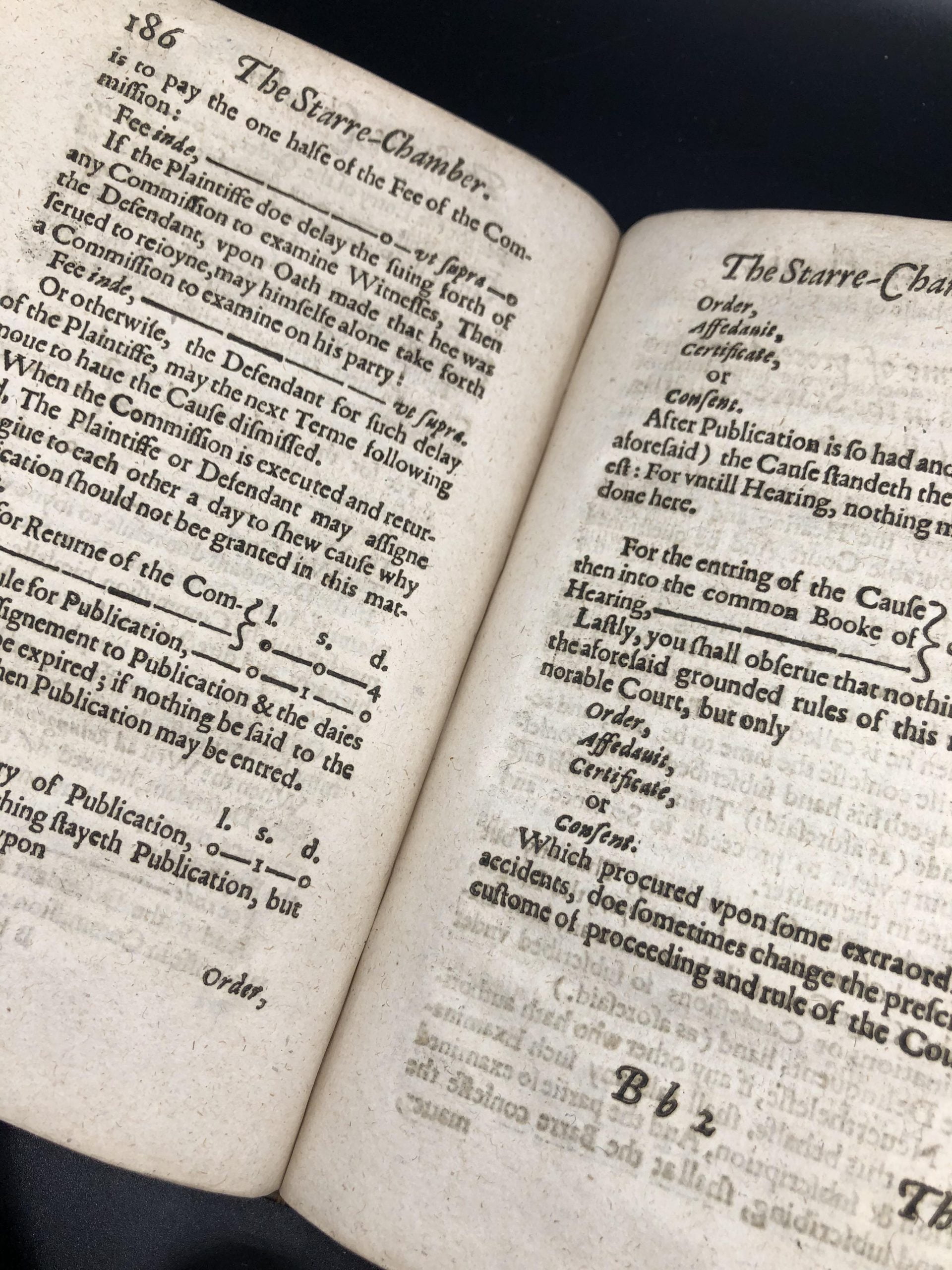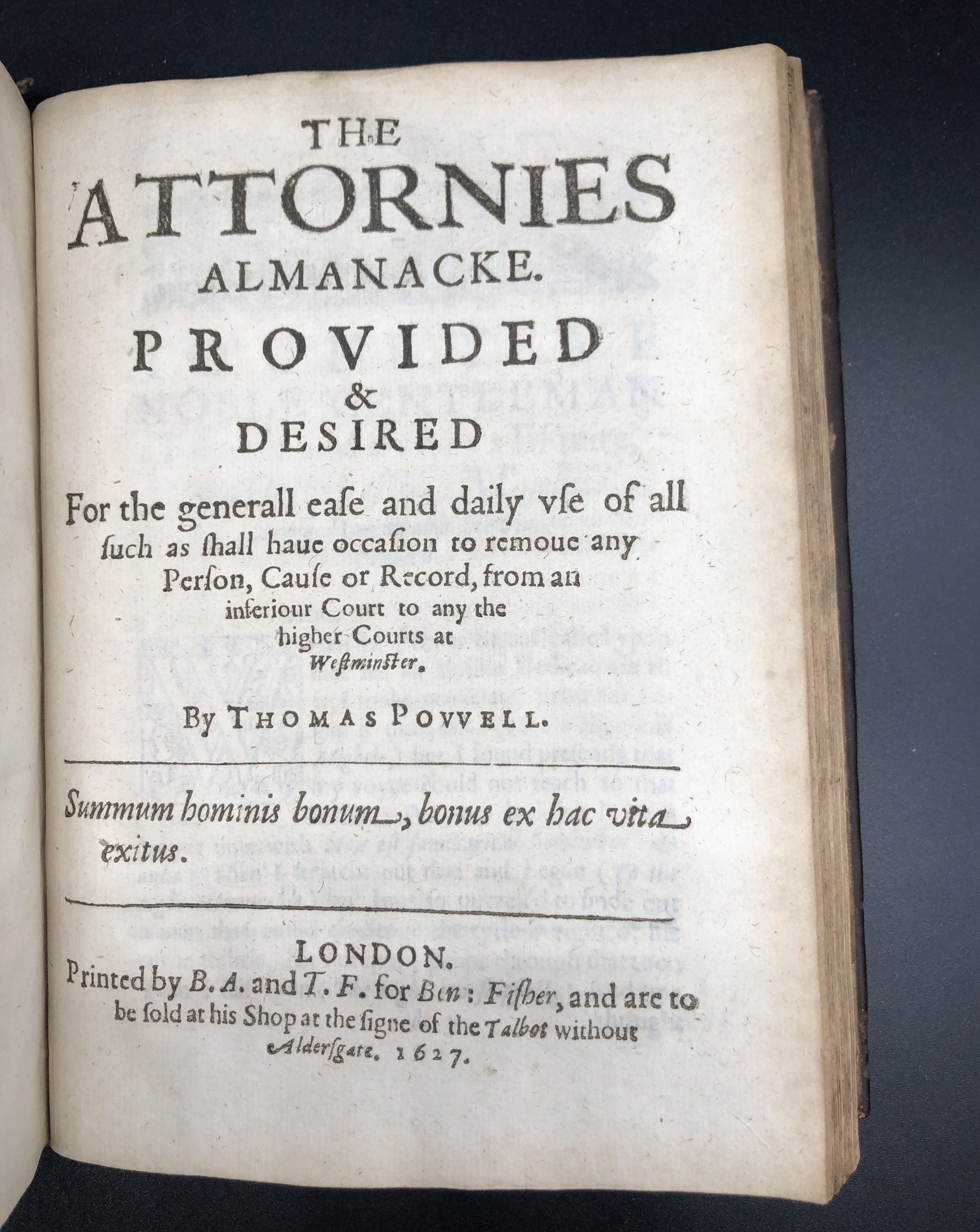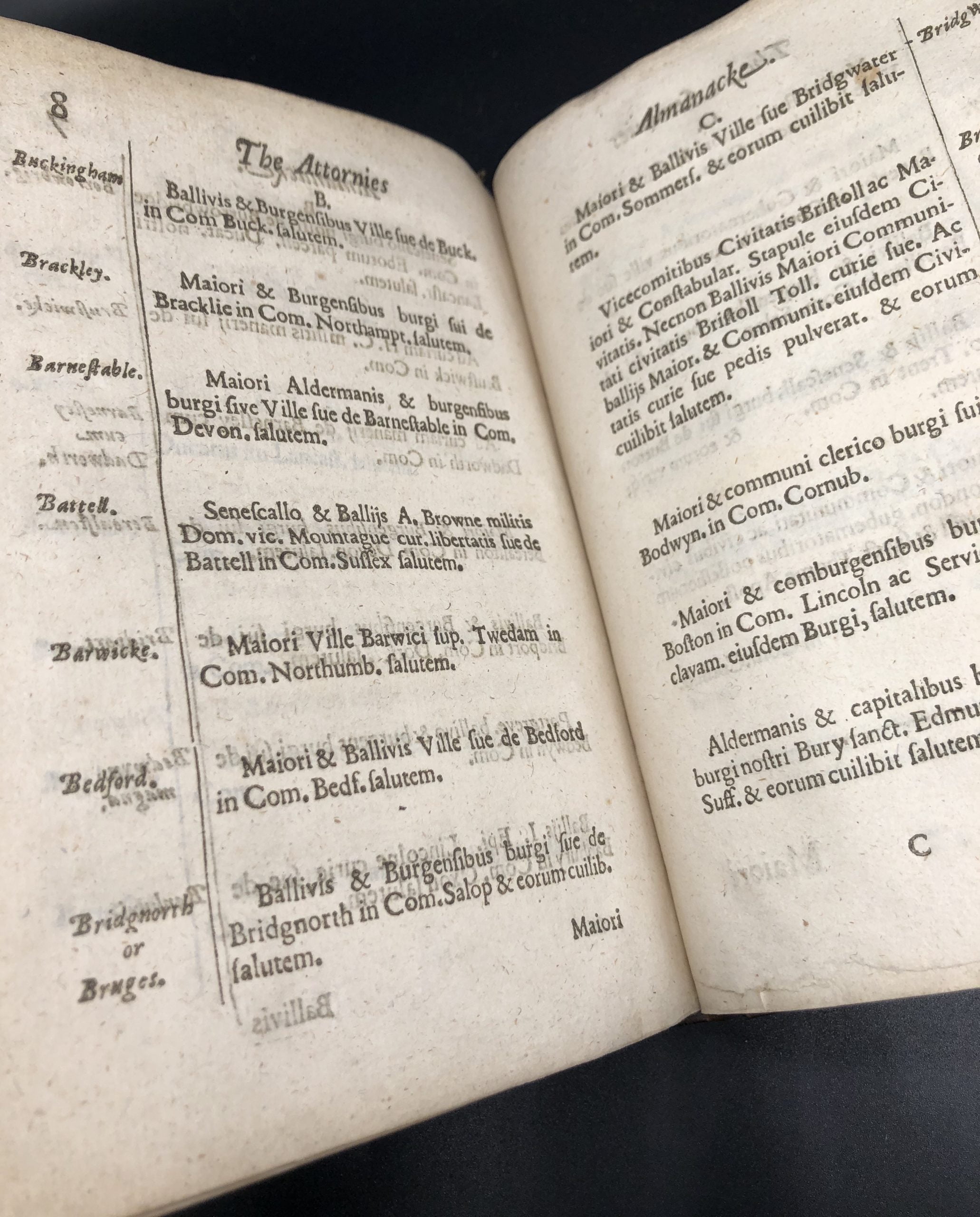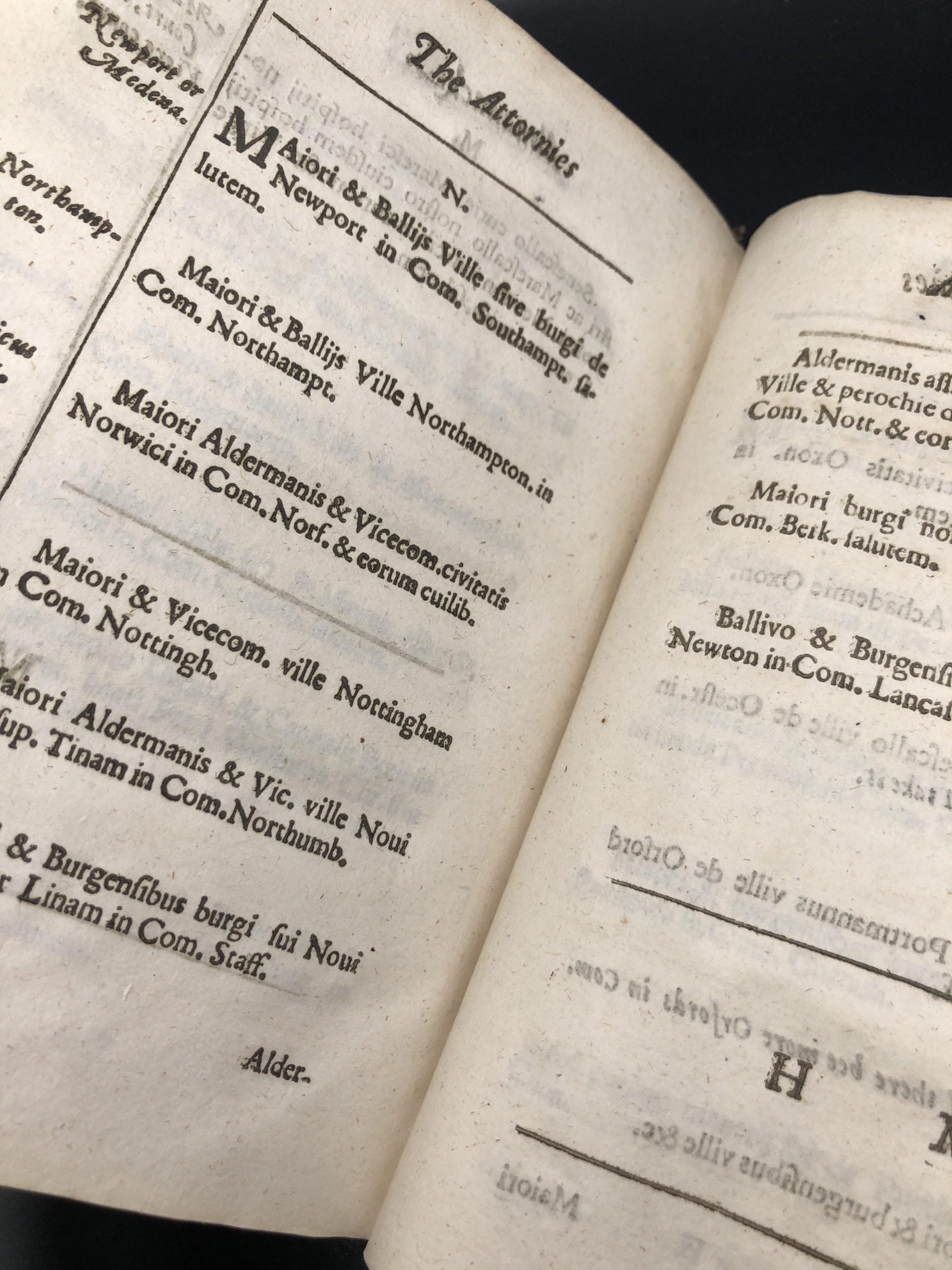POWELL, Thomas
The attourneys academy or, The manner and forme of proceeding practically, vpon any suite, plaint or action whatsoeuer, in any court [with] Direction for search of records remaining in the chancerie. Tower. Exchequer, with the limnes thereof [with] The attornies almanacke.
London, [Bernard Alsop], 1623, 1622, 1627£2,250.00
FIRST EDITIONS. Three vols in one. 4to. 1) pp. [xii], 230, [lxii]: pi², A-2O , 2P². 2) pp. [xvi], 78, [ii]: [par.] , A-L . 3) pp. [viii], 72. : A-K . Roman letter, some Italic. Woodcut initials, head and tail-pieces, typographical ornaments, price in contemporary hand at head of t-p lightly crossed out, early ms. mark on pastedown. Light age yellowing, first title fractionally dusty. Fine copies, crisp and clean, with good margins in handsome contemporary calf, covers bordered with a triple blind rule, spine with raised bands, slight loss at head, blind ruled, ‘P.A’ ms. on fore-edge.
Excellent sammelband of these three eminently practical works by the Welsh poet and Lawyer Thomas Powell, most probably bound for a student. “Seventeenth century legal texts continue to combine theoretical jurisprudence designed for the dedicated law student with pragmatic programmes of study, lists of writs, briefs and pleadings to memorise, and continue to make legal learning more accessible to an ever larger number of readers. According to the title page of Thomas Powell’s 1623 ‘Attourneys academy’ the volume is a comprehensive treatment of ‘the manner and forme of proceeding practically, vpon any suite, plaint or action whatsoeuer, in any court of record whatsoeuer, within this kingdome.’ Powell’s book is one of those most commonly associated with attorneys and its popularity indicates both its usefulness and its ready availability. Moreover, Powell’s ‘academy’, unlike those of the Inns of Court and Chancery, is open to the entire literate population. The book begins with a treatment of the ‘manner of proceeding in the Chancerie’ and procedes through all the London courts (Requests, common Pleas, Exchequer, King’s Bench, Star Chamber, Parliament, the Lord Mayor’s and the Sheriff’s Courts) in a systematic fashion. The book presents the rules of each court in great detail. .. Powell continues step by step through the stages of an action for debt and, at each stage, states what both the plaintiff’s and the defendant’s attorneys need to do. Of Powell’s work, Christopher Brooks writes that ‘The Attouneys Academy could not have been an original work by its reputed author .. a number of quite similar works, which date from as early as the 1580’s, have been found amongst the papers of Attourneys.’” Gary Taylor ‘Thomas Middleton and Early Modern Textual Culture.’
Powell’s second work offered guidance to lawyers concerning the location and use of records, mostly to settle title claims. The study of early records was an important aspect of legal education and this book helped students to locate material for study. They are also important sources for students of Shakespeare and are listed in Lee’s Catalogue of Shakespeareana. “Finding aids such as Thomas Powell’s ‘Direction for search of records’ addressed themselves as much to Lawyers as to a historiographically interested public; major private repositories of documents and books, such as the collection of John Dee at Mortlake or Robert Cotton’s library, were frequently cited by common lawyers; and legal scholars and historians employed similar methodologies of proof and authentication in their work.” Holger Schott Syme. ‘Theatre and Testimony in Shakespeare’s England.’
1) ESTC S124370. STC 20163.5. 2) ESTCS115034. STC 20166. 3) ESTC S115029. STC 20165.Out of stock



